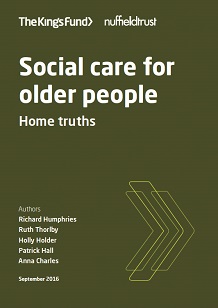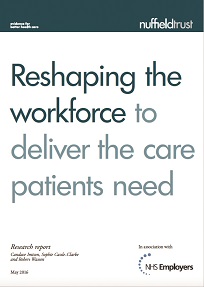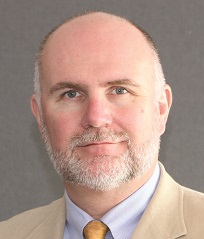News / News review - June 2016
According to NHS England figures last month, the NHS in England missed performance targets in A&E, cancer, elective procedures and ambulance times in 2015/16. It recorded the worst performance against the four-hour A&E metric since the target was introduced in 2004, with 91.9% of patients being seen within the time limit in all types of A&E department. More than 2 million patients attended A&E in March – the highest monthly figure recorded. Ambulances responded to two-thirds of the most serious calls within the eight-minute target. Though the NHS carried out 4% more routine procedures than the previous year, by March 8.5% of patients had been on the waiting list for more than 18 weeks.
There were yet more signs of deteriorating performance. The parliamentary and health service ombudsman reported that poor planning, communication and co-ordination between hospital staff and community health and social care services was compromising patient safety and dignity. In a report on discharge from hospital, ombudsman Julie Mellor said there had been a 36% increase in investigations relating to hospital discharge in the past year. Deaths and suffering could have been avoided had hospitals carried out the right checks before sending pa tients home, she added.
tients home, she added.
General practice is also coming under increasing strain. GP consultations have increased by 15% since 2011, according to King’s Fund research. Its report, Understanding pressures in general practice, found that casemix is becoming more complex and intense, with, for example, a 13% growth in face-to-face consultations and 63% more phone consultations. The biggest rise in consultations was in the over-85 age group, who are more likely to have more than one chronic condition.
MPs have called for an urgent review of NHS clinical staffing in England. The Commons Public Accounts Committee raised concerns about supply, budgeting, agency costs and leadership in a report, Managing the supply of clinical staff in England. The committee warned that ‘no coherent attempt’ had been made to assess the headcount implications of major policy initiatives such as the seven-day NHS.
The health and social care system’s management of discharging older patients from hospital does not represent value for money, according to the National Audit Office. Longer stays in hospital have a negative impact on older people’s health and add financial pressure. In Discharging older patients from hospital, the spending watchdog estimated it cost the NHS £820m a year to keep older patients in hospital when they no longer needed acute care. ‘Without radical action, this problem will worsen and add further strain to the financial sustainability of the NHS and local government,’ said NAO head Amyas Morse.
The NHS should expand the skills of nurses and other staff to develop a workforce for the 21st century, according to the Nuffield Trust. Its report, Reshaping the workforce to deliver the care patients need, said that though this would be tough in the current financial environment it should be considered a ‘must do’ for trusts. The report, commissioned by NHS Employers, backs advanced practice roles for nurses, training support workers such as healthcare assistants to carry out basic checks and a new physician associate role.
Following assembly and parliament elections in Wales, Northern Ireland and Scotland, new governments have been forming. Michelle O’Neill was appointed health minister in Northern Ireland. She said her priorities included co-operation across Ireland and reshaping local health and social care to ensure it was as efficient as possible.
In Scotland, Shona Robison remains cabinet secretary for health and sport. Announcing her new cabinet, Scottish first minister Nicola Sturgeon said Ms Robison would build on her achievements and oversee the government’s ‘strong record of investment in and reform of the NHS in Scotland’, as well as health and social care integration. 
In Wales, Vaughan Gething (right) was promoted to cabinet secretary for health, wellbeing and sport from junior health minister. Predecessor Mark Drakeford has been named cabinet secretary for finance and local government.
Thirty organisations wrote to the Welsh first minister calling on the new government to articulate a long-term vision for health, social care and wellbeing. They wanted a commitment to services being ‘properly resourced, including the required level of planning and investment in the future workforce to ensure that the needs of patients are met’. The group – members of the Welsh NHS Confederation challenge 2016 policy forum – said there should be seamless, person-centred care, driven through further integration across the public sector.
Cancer charities have called on the prime minister to review the drug appraisal process used by the National Institute for Health and Care Excellence (NICE). In an open letter, 15 charities said leaving the methodology unchanged would mean innovative cancer
drugs would not be approved for use under the cancer drugs fund. Reforms could include introducing flexibility for price negotiation or allowing patient experience to play a more significant role in the final decisions on drug approval.
Before rapprochement was seemingly reached on the junior doctors’ contract, British Medical Association leader Mark Porter called on the government to end its denial of the funding crisis facing the NHS. He said that while the NHS had revenue larger than the GDP of some countries, it would struggle to get a credit rating. The service was ‘crippled’ by a government denial that there was a funding problem. The projected £22bn of efficiencies needed over the five-year spending period would not be achieved, he said.
The Department of Health called for evidence in its review of Public Health England (PHE), including whether the arm’s length body is efficient and provides good value for money. The review will also look at PHE’s governance and functions and whether these are delivered effectively. The deadline for responses is 24 June.
NHS Employers has created a finance director guide to the flu vaccination CQUIN (commissioning for quality and innovation), outlining the importance of the flu vaccination programme and ways to support their local flu fighter campaign. The guide has been published alongside one for flu leads, which includes ideas to present to their teams and finance directors.
The month in quotes
‘Health and social care leaders must work harder to uncover why 10 years of guidance to prevent unsafe discharge is not being followed, causing misery and distress for patients, families and carers.’
Parliamentary and health service ombudsman Julie Mellor
‘We need a sustainable system, flexible enough to ensure that the best  cancer drugs can routinely benefit NHS patients. As the prime minister who introduced the cancer drugs fund, we believe that you want these things as well – please do not allow the assessment of cancer drugs to be consigned to a last-century methodology.’
cancer drugs can routinely benefit NHS patients. As the prime minister who introduced the cancer drugs fund, we believe that you want these things as well – please do not allow the assessment of cancer drugs to be consigned to a last-century methodology.’
Cancer charities’ letter to David Cameron
‘It is a health service with a revenue larger than the GDP of many countries but which would struggle to get a credit rating; which suffers from debt, but is crippled by denial.
BMA chair Mark Porter (right)
‘Our research shows that reshaping the NHS workforce can offer huge opportunities – for patients, through improved health outcomes, and for staff, through more rewarding roles and better career pathways. But we stress in our report that this is not simply a “nice to do”, it is urgent – and essential.’
Candace Imison, Nuffield Trust director of policy
In the media
With NHS finance coverage dominated by the trust 2015/16 year-end figures, the HFMA was approached for comment by national newspapers, as well as those aimed at staff in health organisations or public sector accountancy.
HFMA policy and technical director Paul Briddock told The Guardian the £2.45bn deficit was so large that the Department of Health may have trouble balancing its budget. Mr Briddock said that though the figures were broadly as expected, they were still ‘distressing’ and ‘incredibly worrying’.
The figures, published by NHS Improvement, exceeded the forecast position and followed the same downward pattern of previous quarters of the financial year, he told Public Finance.
The joint survey on NHS mental health funding, undertaken by the HFMA with NHS Providers, attracted a lot of attention in early May. Reports relayed the survey finding that half of providers received funding increases in the last year. Only a quarter of provider finance directors were confident their commissioners would increase the value of their contract in 2016/17.
Mr Briddock (right) told Mental Health Today that providers and commissioners had to work together to bridge the gap between physical and mental health provision. Commissioners must be transparent about where additional funding was going and the intended impact, he said. This would reassure providers that the funding reaching the front line was sufficient.
Related content
The Institute’s annual costing conference provides the NHS with the latest developments and guidance in NHS costing.
The value masterclass shares examples of organisations and systems that have pursued a value-driven approach and the results they have achieved.